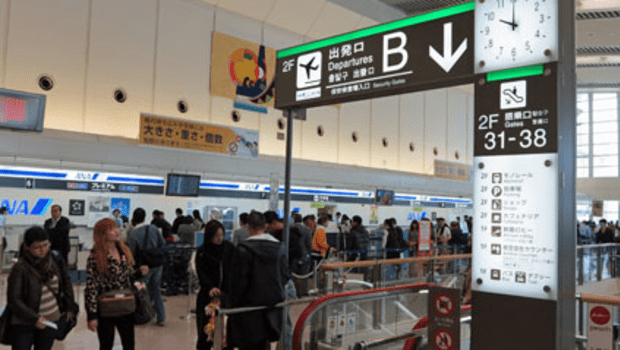-

-
Published on
19/04/2017
by Punchmedia
Tourists Continue Australian Love Affair
The number of Japanese tourists coming to Australia is once again growing strongly, even outpacing arrivals from neighbouring China, according to new figures. Despite being less than half the peak reached in the late 1990s, official figures show arrivals from Japan grew by 24 per cent to 382,000 last year and the federal government is now seeking to nearly double the value of this market by 2020. The strong growth has continued in 2017 with arrivals up 19 per cent in the year to February, ahead of the peak travel period in May. The recent uptick in arrivals has made Japan, along with South Korea, Australia's fasting-growing major tourism market, ahead of China which saw arrivals grow by 17 per cent to 1.2 million last year. The strong growth in Japanese tourists had been attributed to a 20 per cent increase in inbound airline seating during 2016. The 382,000 Japanese visitors to Australia last year spent more than $1.7 billion and as more inbound seats are added, the government is looking to increase this figure to $3 billion by 2020. As a result the hotels and resorts industry in Australia is expected to grow by an annualised 2.7% over the five years through 2016-17, to reach $7.9 billion. This includes projected industry revenue growth of 2.1% in 2016-17.
Profitability
Several factors have boosted industry profit margins over the past five years. These factors include an increasing number of hotel owners switching to hotel management, new technology being implemented to increase staff efficiency, and rising occupancy rates. Cost reductions have been key to maintaining profit, as strong competition from both within the industry and other accommodation providers has caused operators to keep room prices low to attract guests. The number of industry establishments has risen over the past five years, as new hotels have opened to cater to growing demand.Travel trends
Domestic leisure tourists are the industry’s largest market. Consequently, the industry is sensitive to factors that affect the number and duration of domestic overnight trips. Factors such as household discretionary income and consumers’ attitudes regarding their financial situations, as reflected in the consumer sentiment index, have traditionally had the greatest effect on whether Australian consumers choose to travel domestically or internationally.Industry structure
Hotel operators are increasingly moving away from owning the physical property and moving towards management arrangements, where they either lease the premises or only manage hotel operations. This move towards not owning the property typically reduces capital costs for operators and allows them to expand their business without significant additional capital expenditure. The industry’s largest player, Accor Asia Pacific, operates a mixture of owned and leased properties because the company seeks flexibility in its hotel portfolio.
Related articles


